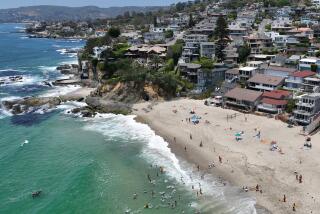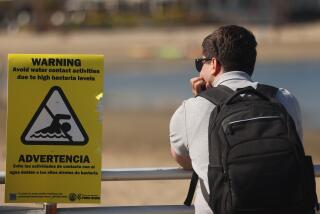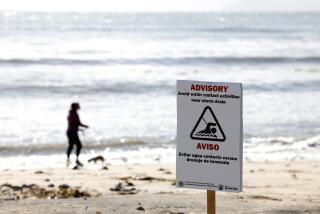Beach Booze Ban
- Share via
I applaud Lee Romney’s article “Alcohol Ban Gets Credit at Beaches” (Aug. 13). The irresponsible use of alcohol has long been a problem at San Diego beaches, and elsewhere. There is no doubt that alcohol is a major contributor each year to excess death and injury, potential years of life lost, and productivity losses. Traditional prevention efforts usually only focus on individuals at risk, societal norms for behavior and environmental conditions that influence drinking and injury. A partial or complete ban of alcohol on the beach makes good public health policy.
Evidence of the benefits of alcohol control policies have recently emerged from the Gulf War experience. According to the National Coalition to Prevent Impaired Driving, the deployment of military personnel to the Persian Gulf region during Operation Desert Storm may have played an important role in the 10% reduction in alcohol-related traffic fatalities in the United States between 1990 and 1991.
A total of 541,425 personnel were deployed to the Gulf, where drinking was rare. Impact Magazine, an alcohol industry trade journal, reports that in communities surrounding U.S. military bases, distributors, bars, restaurants and liquor stores felt the effects of the Gulf War in reduced consumption and sales. According to an article in the Washington Post (April 2, 1991), the disciplinary problems in the Gulf were cut in half and vehicle crashes were reduced significantly without alcohol. Brig. Gen. Ronald Blanck, chief of medical corps affairs for the Army Surgeon General, stated that the Gulf War was the “biggest withdrawal or drying-out program that’s ever been.”
If a non-alcohol policy worked in the Persian Gulf, perhaps it can work on San Diego’s beaches. Not only would it reduce crime and litter, but it would help reduce alcohol-related health problems as well.
DAVID A. SLEET, La Jolla


